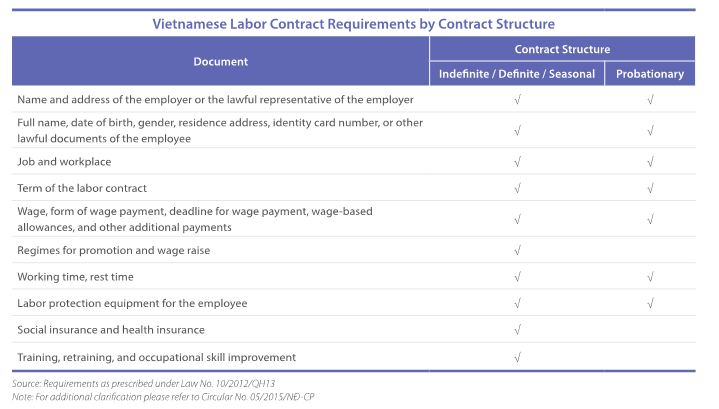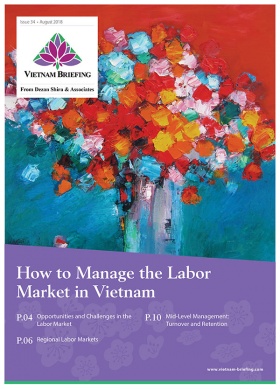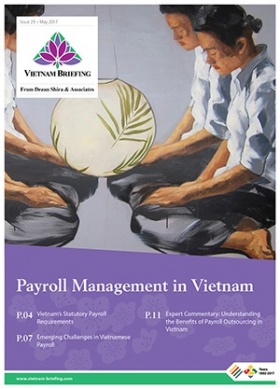Permitted Contract Structures Under Vietnamese Labor Code
All foreign enterprises seeking to staff operations in Vietnam will find the process regulated by the Vietnamese Labor Code of 2012 (Law No. 10/2012/QH13) and guided by several circulars which have clarified aspects of this legislation. Covering hiring, probationary periods, termination of contracts, and post-employment benefits, the nature of contracts should be studied closely to ascertain the most effective means of onboarding workers as well as ensuring the compliance requirements associated with these contracts.
As per Chapter 3, Article 15 of the Vietnamese Labor Code, the following contract structures are permitted and thus should form the basis for cost and compliance comparisons:
- Seasonal or work-specific contracts;
- Indefinite-term contracts;
- Definite-term contracts; and,
- Probationary contracts.
Requisite documentation
Labor contracts are required to outline the following information concerning various aspects of the planned employment. While indefinite, definite, and seasonal labor contracts are required to include all the information outlined above, probationary employment contracts are subject to a reduced list of requirements.
Selecting optimal contract terms
Ranging from under a year to indefinite in length, labor contracts in Vietnam can give employers significant room to maneuver in terms of reduced demand, sudden receipt of large orders, or, as will be discussed further, instances where severance becomes an issue.
Under one year (seasonal contracting)
Contracts under a year in length are reserved for seasonal or task specific employment. While the relatively short periods of time under these contracts can afford a significant degree of maneuverability, there are several limitations that should be noted. First, and foremost, probationary periods – outlined in greater detail below – are currently not permitted for contracts falling under the year mark.
In addition, seasonal contracting is currently restricted for any work that is normally completed under definite or indefinite employment contracts. Exceptions to this include workers filling in for employees contracted under longer labor contracts are indisposed due to pregnancy, military service, sickness, or other temporary leaves of absence.
In the event that the end of a seasonal contract is reached and the employee continues to work for more than 30 days without the introduction of a new labor contract, the worker will be automatically transitioned to a 12 month definite contract.
12 to 36 months (definite term contracting)
Any employer in need of workers for more than a year but on temporary basis, or unsure of their long term needs, will likely find definite term contracts to be an attractive option. Ranging from one to three years, these contracts permit the use of probationary periods but come at the cost of increased contract specificity. For most employers, particularly those hiring skilled workers, definite term contracts are the most effective contract structure that is available in Vietnam.
Similar to seasonal contracts, and in the event that a new contract is not signed within 30 days of the expiry of a definite term contract, the contract of an employee will be automatically upgraded to a definite term employment contract.
It should also be noted that employers may only renew a definite term contract for a particular employee once. Following this renewal, the employee must be hired via an indefinite labor contract as outlined below. The maximum length of time that employers are currently allowed to retain employees on definite term contract is six years.
Indefinite contract terms
As the name suggests, indefinite term employment contracts are effective until the employee or employer decides to terminate the contract. As it becomes more difficult to terminate an underperforming employee on an indefinite term contract, it is generally advisable that employers engage employees on a definite term contract for the first six years and then transition their employees to an indefinite structure following the expiry of the second, and final, definite term contract.
Utilizing probationary periods
Prior to the formal onboarding process, probationary periods provide both employers and potential employees the opportunity to assess their relationship. With reduced contract compliance and compensation requirements on the part of employers, and fewer restrictions surrounding termination of these contracts, the use of probationary periods can be an effective tool to safeguard operations and reduce costs in an environment characterized by an increasingly mobile skilled workforce.
Companies that will primarily benefit from probationary periods are those seeking to employ workers in high-skilled positions. Not only are the skills required for these jobs more subjective and difficult to assess within an interview, the nature of probationary periods permitted for skilled positions have been expanded relative to unskilled positions under current laws.
All employers should note probationary periods and compensation stipulations before utilizing these contracts, as detailed below.
Drafting probation contracts
Under the prevailing labor code of 2012 and subsequent circulars, probationary contracts are subject to a reduced list of information and documentation requirements. The specifics of these requirements can be found above in the chart outlining contract requirements.
Structuring of probation contracts
Probationary periods for a given position are proportional to the education required for the position and range from six to 60 days. These contracts are limited to a one time usage and must be converted to a standard contract of one year or more if both parties wish to continue the relationship beyond the period specified in the probation contract. Existing probationary contract lengths specified under Vietnamese employment law include:
60 days: probationary periods of up to 60 sixty days are reserved for positions that require professional or technical skills that demand a collegiate education or higher.
30 days: probationary periods of up to 30 days may be applied for jobs that require a professional skillset and/or technical qualifications, some of which may require some degree of education to obtain.
Six days: for all other types of employment in Vietnam, including most manual labor and manufacturing, probation is limited to six days.
The distinction between the 30 and 60 day probationary periods is subject to clarification at the circular level and should be monitored closely when drafting contracts. As a matter of compliance, pursuant to Circular No. 05/2015/NĐ-CP, companies will be required to notify those undergoing 30 and 60 day probationary periods of their results three days prior to the conclusion of the probation contract.
Compensation
Compensation for probationary employment is subject to the agreement set out by the parties involved and must be stipulated in the agreement negotiated by the employer and employee. While there is considerable latitude with regard to the amount of compensation that is to be provided for probationary employment, employers are obligated to provide compensation no lower than 85 percent of the going wage applied to the position for which the probation is in preparation.
Hiring through recruiting services
Foreign employers can also use recruiting services to hire Vietnamese workers through reputable sources, but this is pursuant to several qualifications. First of all, only the following foreign offices may be eligible:
- Foreign diplomatic missions, consular offices, representative offices of international organizations of the United National system, intergovernmental organizations of regions and sub-regions;
- Representative offices of foreign news agencies and foreign broadcasting and television organizations;
- International, intergovernmental, and foreign governmental organizations;
- Permitted foreign non-governmental organizations; and,
- Foreign non-profit representative offices of organizations.
These foreign offices are then only allowed to use recruitment agencies approved by the following government bodies:
- Ministry of Foreign Affairs (has the ability to appoint or authorize an organization to recruit);
- Ministry of Labor, War Invalids and Social Affairs (can establish employment service center); and,
- Chairman of a provincial People’s Committee (can establish employment service center).
About Us
Vietnam Briefing is produced by Dezan Shira & Associates. The firm assists foreign investors throughout Asia from offices across the world, including in Hanoi and Ho Chi Minh City. Readers may write to vietnam@dezshira.com for more support on doing business in Vietnam.
- Previous Article An Introduction to Doing Business in Vietnam 2017 – New Publication from Dezan Shira & Associates
- Next Article Vietnam Approves New Fees for Foreigners and Foreign Firms







